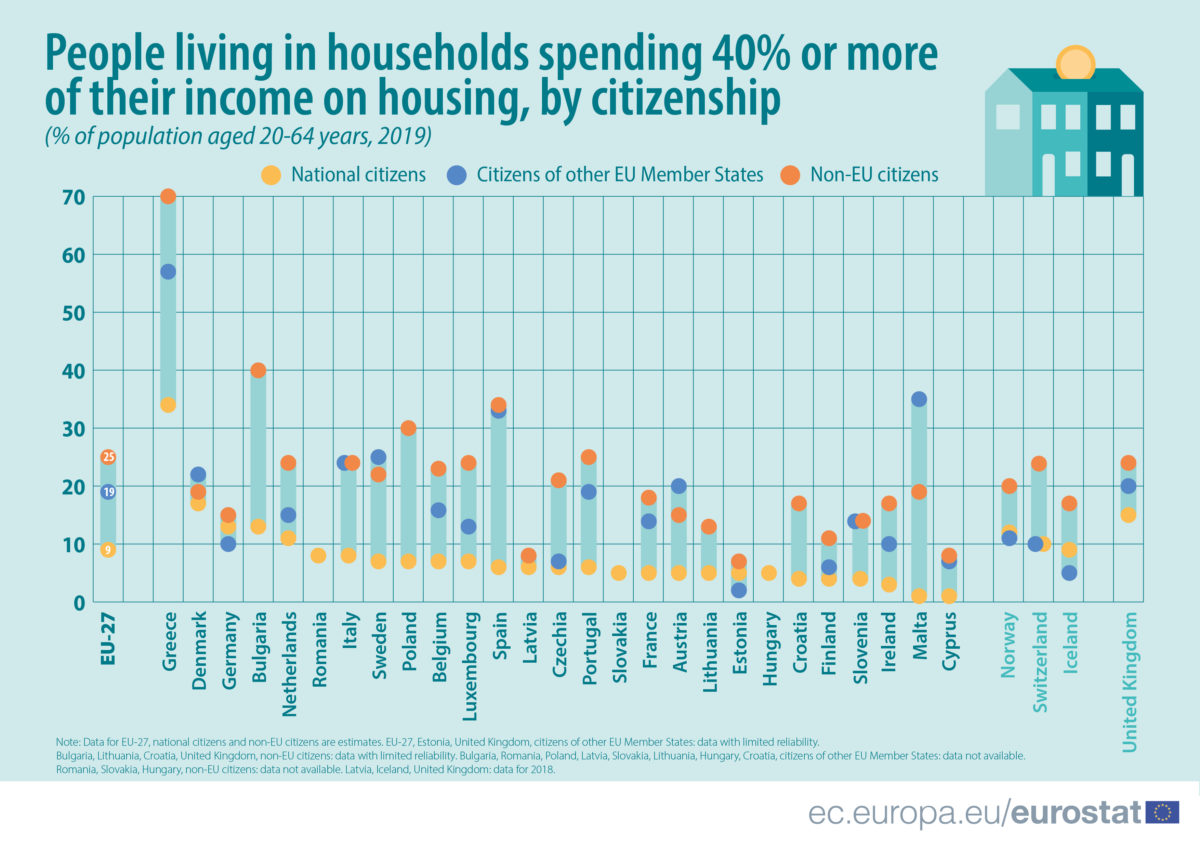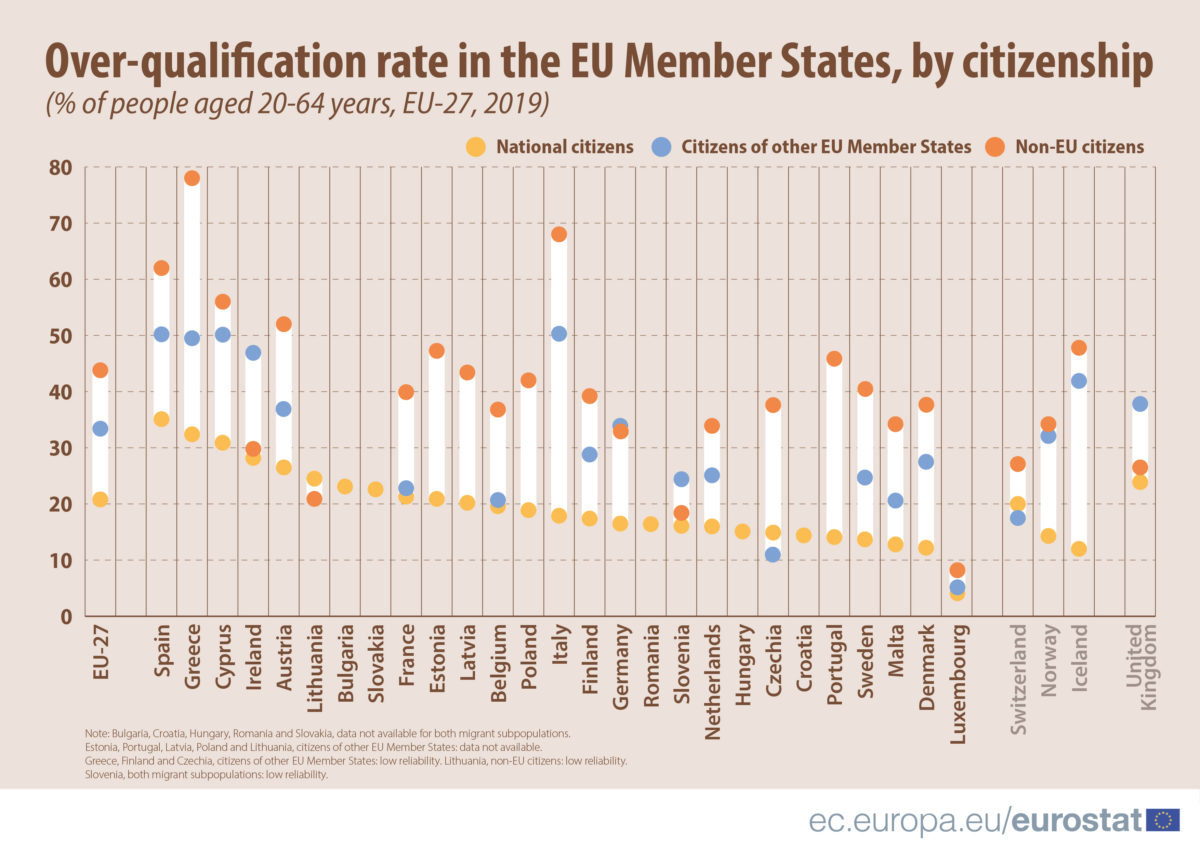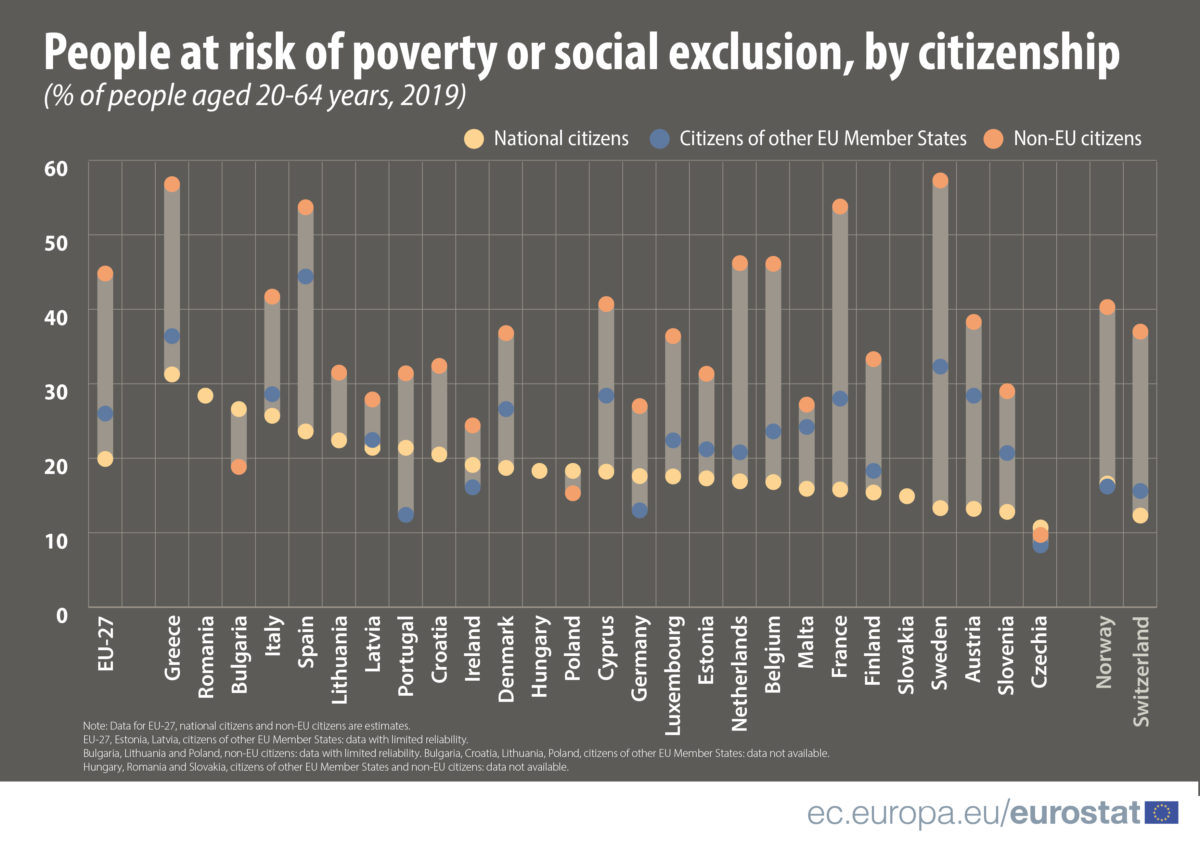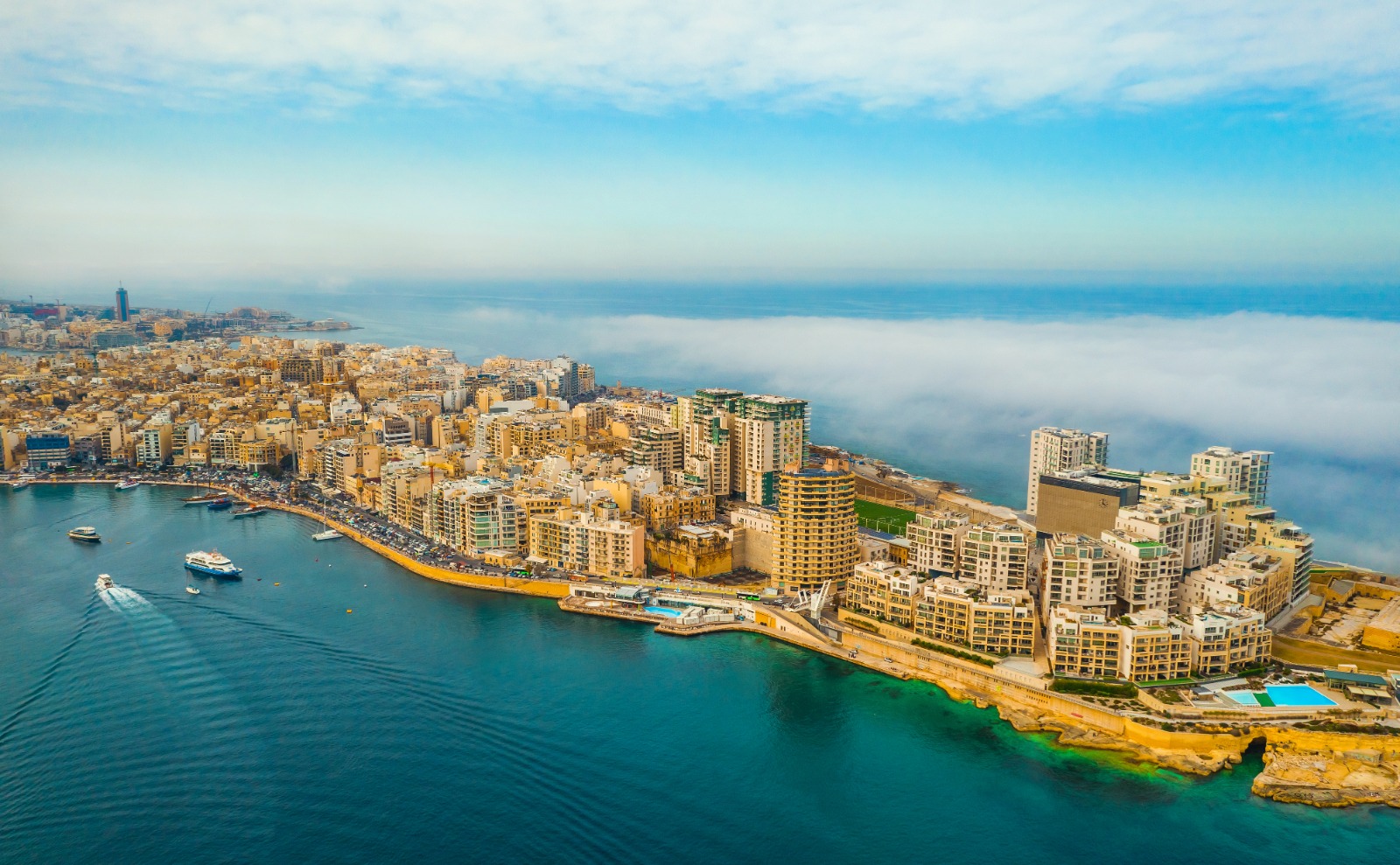According to a report by Eurostat on Wednesday, EU citizens in Malta have the second highest rates of housing cost overburdening across the EU.
The report, which identifies the proportion of the population by nationality that spend more than 40 per cent of their disposable income on housing, shows that 35 per cent of EU citizens in Malta are overburdened by housing costs.
Malta’s disproportionately high rate is second only to that of Greece, which stands at 57 per cent.

Also notable is the fact that Malta is the only country where the proportion of EU citizens that are overburdened by housing costs is significantly higher than the same rate for third-country nationals, of which 26.7 per cent spend more than 40 per cent on housing.
This is especially significant considering only 1.3 per cent of Maltese nationals are overburdened by housing costs.
This revelation come in the wake of reports suggesting that foreign citizens contribute disproportionately to the economy of Malta, with MaltaToday reporting that in 2019, foreign workers and self-employed people paid €168 million in social security contributions of the total €735 million paid altogether.
Eurostat also reported in recent weeks that foreign workers in Malta are much more likely to be overqualified for their positions, with c. 34 per cent of third-country nationals overqualified for their positions, in comparison to less than 15 per cent of locals.

It is widely acknowledged that foreigners contribute enormously to the strength of Malta’s housing market, and the departure from Malta of foreigners, as well as the stopping of new arrivals, has been cited as a main cause for a rather dramatic rate at which rental prices have fallen during the pandemic.
In the words of Frank Salt, the rental market was heavily impact, as foreigners – “who constitute 90 per cent of the rental market in Malta” – could not enter the island.
However, despite the high levels of housing cost overburdening, Malta has relatively low levels of foreigners at risk of poverty or social exclusion, according to Eurostat, with its rate for non-EU citizens significantly below the EU average of 45 per cent.

Two years since its birth, Moneybase features on Microsoft’s Customer Stories
Moneybase has now just been featured on Microsoft’s latest Customer Stories
Finance Minister confirms continuity of food and energy subsidies
Spending on food and energy subsidies as a percentage of the GDP will be at 0.7% in 2025
MHRA congratulates Glenn Micallef on EU role, highlights positive impact on Malta’s tourism and cultural sectors
The lobby group emphasised that Malta’s cultural assets and sports scene are key factors in attracting visitors and fostering economic ...






